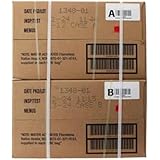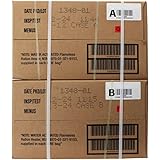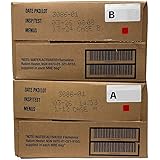Understanding Your Surroundings
Know the Local Emergency Numbers
When I travel, one of the first things I do is familiarize myself with local emergency services. It’s super important to know the emergency numbers in the country you’re visiting. In the U.S., it’s 911, but in many other parts of the world, it can be completely different. Sometimes, it’s a little confusing, but it’s always worth a few minutes to check!
Having the local emergency numbers saved in your phone or written down can save you precious time in a crisis. You never know when you might find yourself in a sketchy situation, so being prepared makes a world of difference. I recommend keeping a small note with this information on you at all times!
Plus, try to learn a few basic phrases in the local language. What if you need to ask for help? Knowing how to communicate can help the situation and also show respect to the locals.
Research Local Hazards
Every area has its specific hazards, whether it’s natural disasters, health risks, or even political instability. Before my last trip, I spent a little time researching potential risks in the area. For instance, I discovered that the region I was visiting was prone to earthquakes, so I brushed up on what to do in that situation.
Knowing these risks not only helps you navigate your trip with confidence but also prepares you mentally for any unexpected situations. This kind of foresight has helped me remain calm and composed during a bizarre travel mishap.
Besides just focusing on hazards, it’s also worth checking local news sources while you’re on the ground. Just keeping an ear open can alert you to any changing conditions that may affect your stay.
Stay Aware of Your Surroundings
I can’t stress this enough: situational awareness is key. When I’m out exploring new places, I always make an effort to stay attentive to my environment. This means being aware of who is around you and what’s happening in the area. Often, we get so wrapped up in our phones or taking photos that we forget to look around!
Whenever I enter a new place, I usually take a mental note of exits, emergency equipment, and changes in crowds. This might seem a little overboard, but understanding the dynamics of my surroundings can really help in an emergency. When you’re aware of what’s happening around you, you’re less likely to be surprised.
== > What if ... Get a FREE Subscription to PREPARE
This doesn’t mean you should be paranoid, but rather adopt a mindset of cautious curiosity. It’s all part of being a prepared traveler!
Essential Travel Gear for Emergencies
First Aid Kit
Nothing screams “prepared” like a good first-aid kit. I’ve had my fair share of minor injuries on trips—everything from scraped knees to blistered feet. Having a compact first-aid kit can be a lifesaver, literally! I always pack adhesive bandages, antiseptic wipes, and some basic medications like pain relievers and allergy meds.
It’s also really helpful to include any personal medications you might need. Just pull together the essentials specific to your needs. My go-to list includes some ibuprofen, allergy tablets, and something for on-the-go stomach relief—because you never know when street food might not agree with you!
Regularly check your kit before you leave! Make sure everything’s stocked up, and that any substances haven’t expired. It’s an added step, but it saves you a lot of trouble in the end.
Portable Phone Charger
Let’s be real: we rely on our phones for just about everything while we travel. From navigation to communication, having a portable charger is a lifesaver. A dead phone can throw a wrench in your emergency plan pretty fast. Trust me; I’ve been there!
I usually carry a power bank that can charge my phone at least twice. This way, I never find myself stranded without a means to call for help or access information. Plus, if I’m in a remote area, it’s essential to keep that battery up for any unexpected situations that might arise.
Before heading out, I check that my portable charger is fully charged. Sometimes I’ll even set reminders to charge it every couple of days when I’m on longer trips. Whatever it takes to stay connected.
Multi-tool or Swiss Army Knife
A multi-tool is probably one of my favorite travel accessories. You never know when you’ll need a screwdriver or a bottle opener, right? I make it a point to bring a compact one with me. These nifty gadgets can be incredibly handy in a variety of situations—it’s like having a little toolbox right in my pocket!
Whether you’re fixing a loose screw on your luggage or unearthing a snack from a tightly sealed bag, a multi-tool can come to the rescue. Just keep in mind the security regulations for flying, as some tools are not allowed in carry-ons.
Having a multi-tool also gives you a bit of peace of mind—because in some scenarios, you might need to improvise. I can’t count how many times I’ve been grateful for mine when unexpected situations popped up!
Communication Plans
Share Your Itinerary
Your friends and family back home will appreciate it when you share your travel plans. I always send a rough itinerary to someone close to me, so they have an idea of where I am. In the case of an emergency, it’s vital they know where to locate me or check on my well-being.
Keep it simple—just share the major stops and activities you’re planning. It doesn’t have to be overly detailed. The point is to provide a framework so they can reach you if necessary. Being open and clear helps everyone feel at ease!
Also, keep them updated if plans change or if you have any delays. A quick text or email makes a huge difference, ensuring no one is worrying unnecessarily.
Know How to Reach Help
Making sure you know how to reach help when you need it is crucial. I often save local emergency services’ contact information in my phone plus any hotel or lodging addresses. It’s good to have these on hand just in case things go sideways.
Additionally, I recommend downloading a translation app, especially if you’re traveling somewhere where English isn’t the primary language. This way, if you need to communicate with locals, you can ensure they understand your need for assistance. Nothing beats being able to communicate clearly in stressful situations!
Lastly, if you’re traveling with someone, establish a signal or code word to communicate when you feel uncomfortable. It’s a little added security measure that can relieve anxiety in sticky situations.
Stay Connected
Lastly, staying connected during your travels is vital. Whether it’s through a local SIM card or an international plan with your carrier, make sure you have access to communication at all times. I experience much less anxiety when I know I can reach out to family or friends should something go wrong.
Get Preparedness and Self-Reliance Tips. Subscribe Now!
Some travel apps even allow for messaging over Wi-Fi, so consider utilizing those too. I’ve had great luck with apps like WhatsApp and Viber that let you stay in touch without racking up expensive charges!
Having trustworthy methods of communication can provide that extra layer of security and comfort. In uncertain situations, knowing you can contact someone can be reassuring beyond measure.
Financial Safety Measures
Carry Multiple Payment Methods
When it comes to money, I like to have a plan. I usually carry a mix of cash, credit cards, and even a prepaid travel card. This way, I’m covered no matter where I am. What if one of your cards gets lost or stolen? Having backup options is crucial!
Plus, I always keep track of where I’ve stashed each payment method. For example, I might carry one card in my wallet and another in a hidden pocket. Just in case something goes awry, it’s all about being smart and strategic.
Also, it can be handy to distribute cash among a few pockets rather than keeping it all in one spot. Think of it as a mini treasure hunt, and if something happens, you’ll still have access to funds from different places.
Notify Your Bank or Credit Card Company
Before I jet off, one of my first steps is notifying my bank or credit card company of my travel plans. This way, they won’t flag my purchases as suspicious when I start using my cards abroad. I learned this the hard way when my card was declined at a restaurant in Italy because they thought my spending was suspicious!
I usually give them the dates and countries I’ll be visiting. Major banks often have great travel policies, so it’s worth making a quick call. This not only prevents inconveniences but also provides peace of mind while I’m away.
Some banks have apps that allow you to manage your cards more easily, and it can be a lifesaver when needing to freeze a card if something gets lost or stolen on the go.
Emergency Fund
It’s always wise to have some form of emergency fund set aside while traveling. I like to keep a small stash of cash tucked away in a safe place—somewhere that’s not my wallet. This comes in handy if I run into unexpected expenses.
This can be anything from a minor medical issue to needing to book a last-minute hotel. I can’t stress enough how nice it feels to know that if things go sideways, I’ll have some funds to fall back on.
Also, consider keeping a credit card designated just for emergencies. That way, any added debt for unforeseen expenses is separated from your regular spending. Better to be safe than sorry!
Emergency Contacts
Local Emergency Services
As mentioned earlier, making sure I have the correct local emergency numbers stored is key. When I’m visiting a new place, I often do a quick “emergency services” search to memorize or save the numbers.
Not only do I save these in my phone, but I also jot them down on paper and keep it in my wallet. It never hurts to have a hard copy, especially if my phone is lost or out of battery.
Knowing who to call in dire situations reduces stress and allows me to stay focused on resolving the issue at hand.
Emergency Contacts Back Home
It’s also wise to have a list of emergency contacts back home. These could be family, friends, or colleagues who can act on your behalf if needed. I usually keep this list in my phone and also share it with someone at home, just for added security.
In particular, give your contacts specific instructions on what to do if they don’t hear from you within a certain timeframe. I find that communicating this to them helps alleviate any concerns they may have about my well-being while I’m away.
And if you have a trusted friend or relative who can be your point person in case of emergencies, that can be very handy! They can act quickly if something goes amiss.
Travel Insurance Information
Lastly, I can’t help but emphasize the importance of travel insurance. Accidents happen, and having coverage can make a massive difference in times of crisis. I always carry a copy of my travel insurance policy and emergency contact information as well.
In case of an emergency—be it a health issue or a canceled flight—having your insurance details at your fingertips allows for smoother coordination with assistance services. I usually keep a digital copy and a hard copy, just to be safe.
If anything goes wrong, the last thing I want to think about is how to access my insurance. Plus, don’t forget to read the fine print! Knowing what’s covered can help prevent headaches later.
FAQs
1. What should I pack in my travel first aid kit?
Your travel first aid kit should include basics like adhesive bandages, antiseptic wipes, pain relievers, and any personal medications you use. Consider adding items for common issues like motion sickness or allergies!
2. How do I stay aware of my surroundings while traveling?
Staying aware means making a conscious effort to keep an eye on your environment. Avoid distractions like your phone when navigating new areas, and pay attention to what’s happening around you. It also helps to have a mental map of exit routes!
3. Why is travel insurance necessary?
Travel insurance is crucial as it can cover unexpected expenses such as medical emergencies, trip cancellations, and lost belongings. Having that protection gives you peace of mind and removes some stress during your travels.
4. How can I keep my money safe while traveling?
Keep your money safe by carrying multiple payment methods, notifying your bank of your travel plans, and having a little stash of emergency cash hidden away. Use a money belt or hidden pouch for added security!
5. What should I do if I lose my phone while traveling?
If you lose your phone, stay calm. First, retrace your steps and check any locations you visited. If it’s not retrievable, notify your mobile carrier to suspend your service and report the loss. Having emergency contacts saved can help you reach out for assistance.






